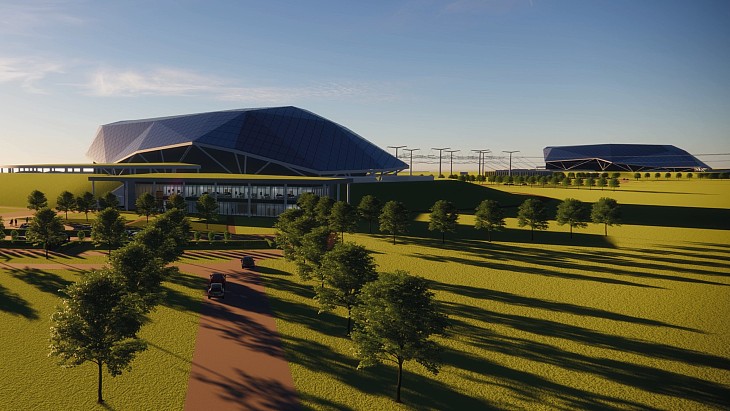The SMR-160 application is under review by the Canadian Nuclear Safety Commission and is in Phase 1 of the three-phase evaluation cycle. State Nuclear Regulatory Inspectorate of Ukraine, the nuclear regulatory authority in Ukraine, is expected to coordinate its regulatory assessment of SMR-160 under a collaborative arrangement with its Canadian counterpart.
Energoatom President Yury Nedashkovsky announced plans to establish a consortium with Holtec and Ukraine's national nuclear consultant, State Scientific and Technical Centre for Nuclear and Radiation Safety (SSTC-NRS), to explore the environmental and technical feasibility of qualifying a 'generic' SMR-160 system that can be built and operated at any candidate site in the country "with absolute assurance of public health and safety", Holtec said on 19 February. A formal announcement of the adoption of the terms of engagement for the consortium is expected shortly.
At the same meeting, Holtec signed a memorandum of understanding with Exelon Generation, adding Exelon to the SMR-160 team, which currently includes SNC-Lavalin and Mitsubishi Electric.
Chris Mudrick, Exelon Generation senior vice president, Northeast Operations, said in the Holtec statement: "As the largest nuclear operator in the United States, Exelon Generation is pleased to partner with Holtec to develop an operating model for the SMR-160. This project is a great example of how innovation and new technologies are bringing our industry together and driving the future of nuclear power."
Under the terms of the MoU, Exelon Generation plans to support SMR-160's market acceptance, develop a generic deployment schedule and staffing plan, and assist to improve its operability and maintainability features, Holtec said. As SMR-160s are built around the globe, Exelon Generation could provide reactor operating services to customers that lack an established nuclear industrial infrastructure, it added.
Holtec describes the SMR-160 as a "passive, intrinsically safe, secure and economical" small modular reactor that has the flexibility to be used in remote locations, in areas with limited water supplies or land, and in unique industrial applications where traditional larger reactors are not practical.
It adds: "The plant offers a balanced combination of practical innovation and proven technology to withstand the most severe postulated accidents. This advanced nuclear power plant has major appeal in domestic and international markets, offering a right-sized, cost-effective solution for carbon-free energy, and ensuring attainable power options to existing and emerging global economies demanding increased certainty of public safety, environmental protection and security from intrusion and proliferation of nuclear materials."
The meeting was led by the incoming chairman, Michael Rencheck, CEO of Bruce Power, Canada, and attended by invited industry experts from several leading organisations, including Bruce Power, Energoatom, Entergy, Exelon Generation, Southern, Talen Energy, NEI, SNC-Lavalin, Mitsubishi Electric, and several major suppliers. The international contingent consisted of business and technology leaders from Canada, Japan, Saudi Arabia, Ukraine and the United Arab Emirates.
Holtec said the large contingent of participants - more than 40 - reflected the growing industry enthusiasm for the SMR-160 technology, which Holtec described as its recognition as a "viable contributor to humankind's drive for carbon-free energy generation".

.jpg)



_19544_40999.jpg)


_66668.jpg)





